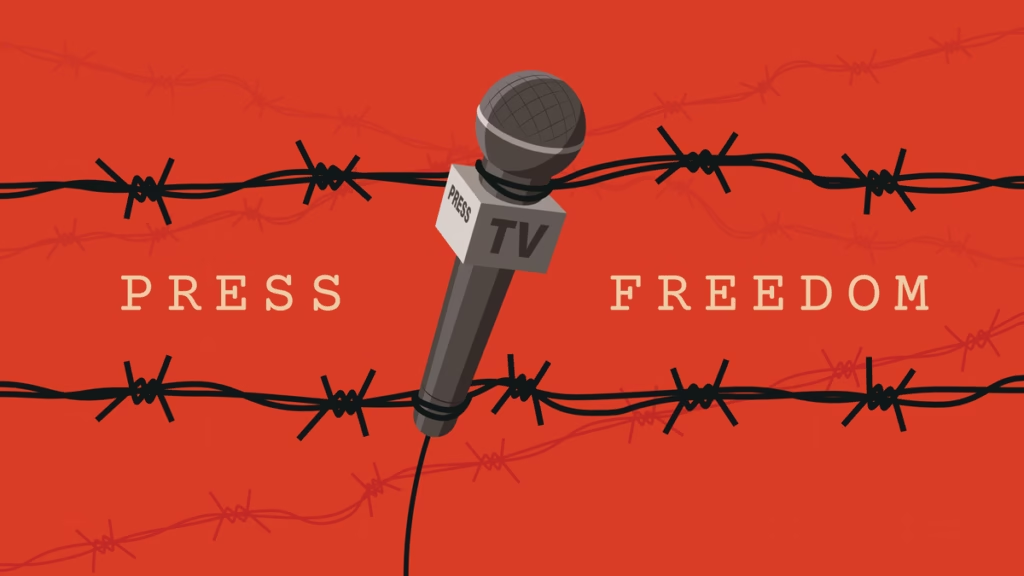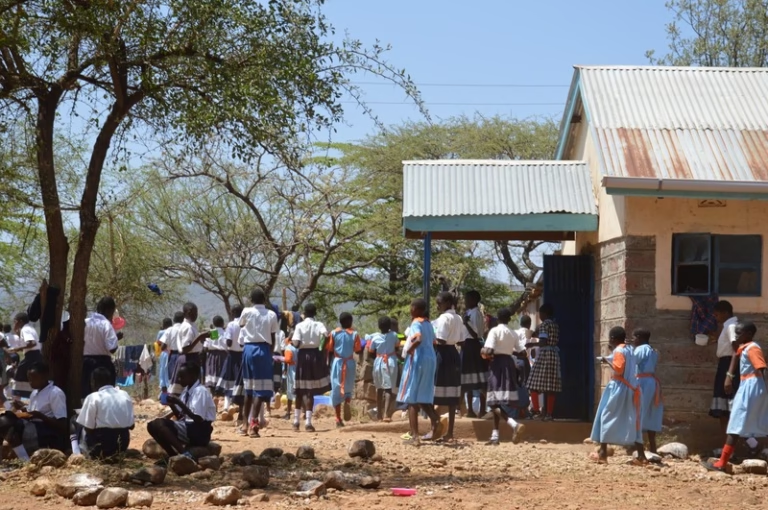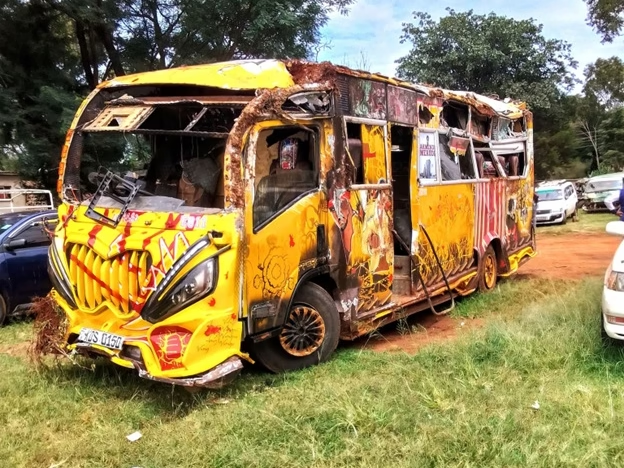
In recent years, Kenya’s media landscape has witnessed a concerning decline in press freedom, as increasing government interference threatens the very foundation of independent journalism.
The BBC’s controversial documentary “Blood on Parliament,” which exposed grave allegations of extrajudicial killings and state-backed violence, has ignited an intense national debate about the freedom of the press and the growing control exerted by the government over media narratives. The documentary’s airing and subsequent response have shed light on the systemic efforts to silence critical media, curtail free expression, and intimidate journalists who dare to challenge the status quo.
Kenya, once hailed as a beacon of press freedom in East Africa, now finds itself at a crossroads. The government’s increasing attempts to muzzle independent journalism and control the flow of information reflect a broader global trend where authoritarianism is on the rise, and democratic values such as media freedom are under attack.
For decades, Kenya’s vibrant media sector has served as a voice for the voiceless, exposing corruption, injustice, and government misconduct. However, a disturbing pattern of suppression has emerged, as journalists, filmmakers, and media outlets face growing threats of censorship, intimidation, and physical violence.
The “Blood on Parliament” documentary, which investigated the link between political elites and extrajudicial killings, uncovered uncomfortable truths about the inner workings of Kenyan politics. The government’s immediate response was swift and aggressive, attempting to discredit the film, block its distribution, and punish those responsible for its production.
This heavy-handed approach is part of a broader strategy to control media narratives, especially when those narratives challenge powerful political figures or expose government wrongdoing. The suppression of such critical content serves as a stark reminder of the challenges journalists face in a country where freedom of speech is increasingly under threat.
The Kenyan government has leveraged both legal and economic tools to clamp down on press freedom, using the law as a weapon to punish dissenting voices. The 2018 Computer Misuse and Cybercrimes Act, for instance, criminalizes the spread of “false” or “misleading” information online, with severe penalties for those found guilty.
While the law was ostensibly introduced to combat cybercrimes, its vague language makes it ripe for abuse. Journalists, bloggers, and ordinary citizens alike are at risk of prosecution for simply sharing information that the government deems “false” or politically inconvenient. The law, in practice, has been used to intimidate and silence independent voices, curbing the free exchange of ideas and information.
Economically, the government has found ways to exert financial pressure on the media. The Government Advertising Agency (GAA), which controls the distribution of state advertisements, has been accused of selectively withholding advertisements from media outlets that criticize the government.
These financial reprisals undermine the viability of independent media outlets, many of which rely heavily on state advertisements to stay afloat. This economic control fosters an environment of self-censorship, where media houses prioritize the preservation of financial interests over the pursuit of objective and independent reporting.
Censorship, both overt and covert, has become a regular feature of Kenya’s media environment. The government has used its influence to block films, articles, and broadcasts that challenge its narrative or shed light on uncomfortable truths. One notable example is the banning of the film “I Am Samuel,” a documentary that explores the life of a gay Kenyan man.
Despite its critical acclaim internationally, the film was banned by the Kenya Film Classification Board (KFCB) for violating “national values” and promoting “unacceptable content.” While the government framed the ban as a defense of traditional values, the move was widely perceived as part of a broader agenda to stifle free expression and silence marginalized voices, particularly those advocating for LGBTQ+ rights.
Moreover, Kenya’s Film Classification Board, which is tasked with regulating the media, has been accused of overstepping its mandate, acting as a tool of political censorship rather than a neutral body protecting the public’s access to diverse and uncensored content. This form of control restricts the freedom of filmmakers, journalists, and content creators who seek to tell stories that might not align with the government’s preferred narrative.
The Media Council of Kenya (MCK), an important regulatory body meant to safeguard press freedom, is another institution that has struggled with its independence. While its stated mission is to promote and protect press freedom, critics argue that its funding and appointment processes, heavily influenced by the government, compromise its ability to act as an impartial watchdog. This situation leaves journalists vulnerable to harassment and legal action, with little recourse for seeking justice.
The government’s influence over media regulation extends beyond just the MCK. Political appointments to key media positions, as well as state-run media houses, have exacerbated concerns about the lack of independence in Kenya’s media. The state-run Kenya Broadcasting Corporation (KBC), for example, has been accused of serving as a mouthpiece for the government, prioritizing government-approved content and avoiding critical reporting. This limits the diversity of viewpoints available to the public, narrowing the scope for constructive debate and public discourse.
Despite these challenges, Kenyan journalists and civil society groups have continued to fight for their rights to report freely. Independent media outlets, although under pressure, continue to expose corruption, human rights violations, and abuses of power. In recent years, digital activism has played a critical role in circumventing traditional media restrictions. Social media platforms, blogs, and independent websites have become spaces for journalists and citizens to share information that would otherwise be suppressed.
However, the digital space is not without its challenges. As the government tightens its grip on the media, it is increasingly turning its attention to the online space, where freedom of expression is less regulated. The implementation of stricter cyber laws and the growing prevalence of surveillance make it harder for digital journalists and activists to operate freely. The state’s ability to track online activity poses a significant threat to the safety and security of those using the internet as a platform for dissent.
As Kenya grapples with the erosion of press freedom, there is hope in the form of media reform proposals and advocacy efforts by local and international organizations. Proposals to create a Media Diversity and Sustainability Fund aim to reduce media outlets’ dependency on government advertising and provide an alternative source of revenue. Such initiatives would empower independent journalism and help prevent the government from using financial pressure to influence media content.
Furthermore, there is growing support for the reformation of the Government Advertising Agency to ensure that it operates independently and is not used as a tool of political control. The push for these reforms is being led by media practitioners, civil society organizations, and international bodies that recognize the critical role a free press plays in holding the government accountable and ensuring democratic governance.
Kenya’s media is at a critical juncture. The increasing control by the government, coupled with legal and financial pressures, poses a serious threat to press freedom and democratic accountability. The media’s role as a check on government power and a platform for public discourse is fundamental to the health of the nation’s democracy. Protecting media freedom requires collective action from journalists, civil society, the public, and international partners.
As Kenya moves forward, it must prioritize the defense of press freedom, ensuring that journalists can report without fear of retribution and that the public has access to diverse and uncensored information. Only then can the country fulfill its potential as a truly democratic society, where the truth is allowed to flourish, unencumbered by political interference.





